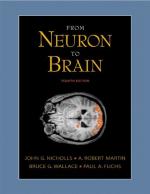|
This section contains 1,432 words (approx. 5 pages at 300 words per page) |

|
Overview
Neurology, the study of the brain along with the body's nervous system, had little structure in the medical community of late-Medieval and Renaissance Europe. The renewed intellectual enthusiasm of the Renaissance brought about an appreciation for classical study, and with it advances in the knowledge of the anatomy of the human brain. Much of the period, however, was devoted not to seeking practical medical knowledge about the nervous system, but to pondering the philosophies of its nature. Occasionally, empirics or quacks filled the void, performing surgeries on the scalp, administering drugs or herbs, or chanting for the benefit of a patient with headache, neuromuscular difficulty, or mental illness. By the end of the seventeenth century, however, the scientific and Hippocratic methods, based on direct observation and experimentation, were laying the foundation for the future study of neurology...
|
This section contains 1,432 words (approx. 5 pages at 300 words per page) |

|


